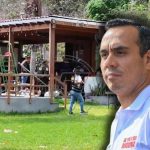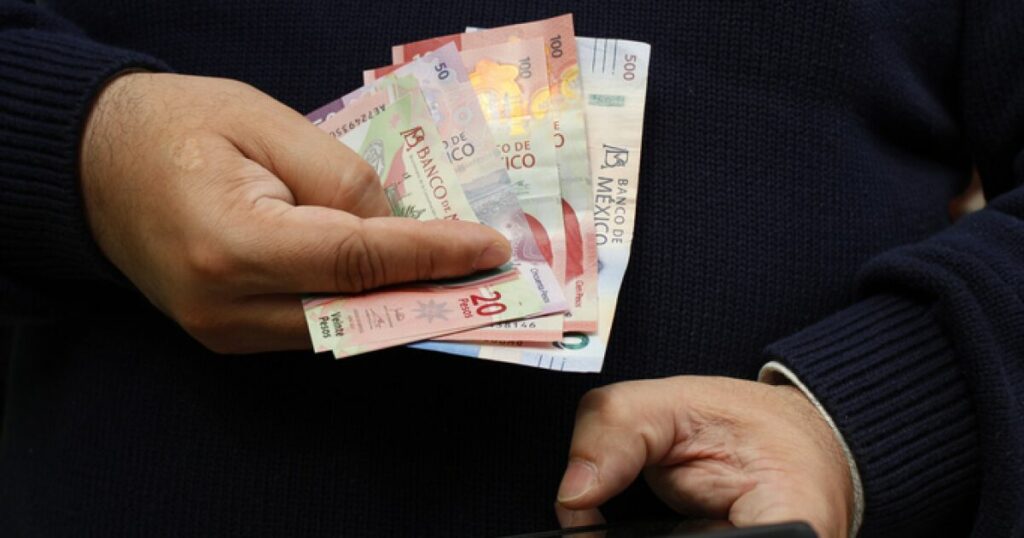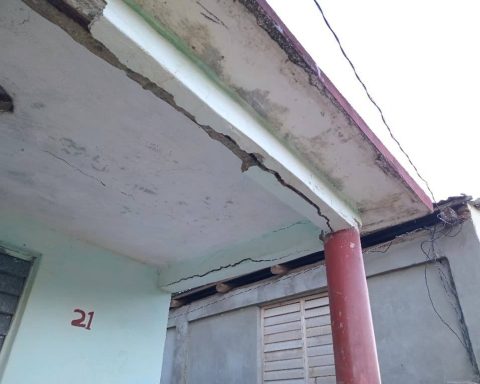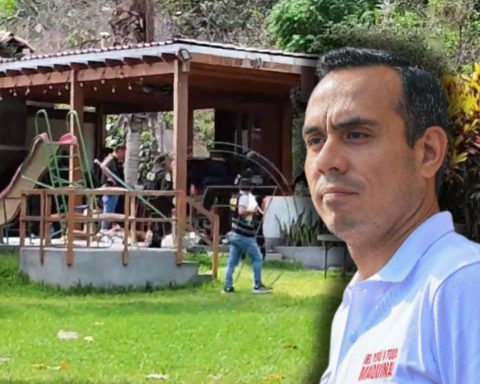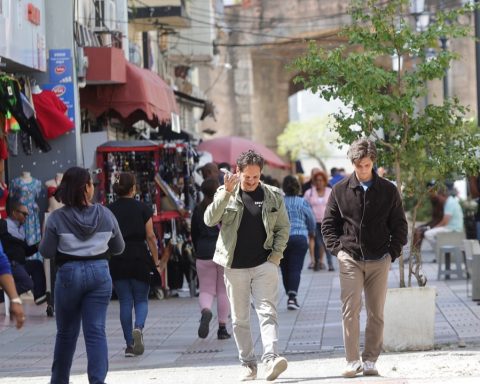Former US Ambassador John Feeley, executive director of the Center for Media Integrity in the Americas, urged the US Treasury Department – on September 2 – to take a closer look at the Central American Bank for Economic Integration ( CABEI), “led by an individual named Dante Mossi, who has become the banker of the dictators.”
For a long time, the executive president of CABEI, the Honduran Mossi, has been the target of criticism from those who question not only high travel and wages that the Bank pays its officials and representatives, but rather the generosity with which it provides resources to the authoritarian regimes of Central America.
Feeley made the warning about Mossi, at an event called ‘Religious Persecution and Closure of Civic Space in Nicaragua,’ organized by the Center for Strategic and International Studies (CSIS), adding that “billions of dollars have been lent to Nicaragua with very weak supervision, which leads to corruption.”
The US diplomat explained that “CABEI raises its capital in international capital markets, including the United States, and lends 23% of its portfolio to Nicaragua. Something is rotten down there, and I would investigate it quickly.”
CONFIDENTIAL He spoke with seven sources who know the Honduran banker and his career, who shared their opinions about the failures and omissions made in electing him almost four years ago. They also criticized the licentious flexibility with which he manages the Bank’s resources, assuring that it is his way of getting the votes to stay five more years at the head of the multilateral entity.
Although an interview with CABEI’s executive president was requested, he replied that “I am on a Board mission and I invite you to join our next call for regional media”, copying Salvador Sacasa, Communications and External Relations advisor of CABEI, in the email. Bank.
On August 19, at the insistence of CONFIDENTIALSacasa responded that “CABEI carries out… regional press conferences in which issues related to institutional management and the different programs and projects that are executed at the level of all the countries of the Central American Integration System are addressed, ( SICA) and its extra-regional partner countries”.
“I reiterate once again what was indicated by the executive president: that we will be inviting you to the next conversation to be held on a date not yet determined, in which you will be able to directly formulate all the questions of your interest to the highest representative of the bank.”
That invitation hasn’t come yet.
Mossi was not the ‘preferiti’
Almost four years after his election, the sources familiar with CABEI emphasize the unusual way in which the stars aligned for the Honduran to become the executive president of the Bank in November 2018, replacing the also catracho Nick Richbiethignoring the agreement to rotate the nationality of the officials who hold that position.
The Salvadoran political scientist Napoleón Campos, believes that “the decision to elect Mossi was political”, because the then president of Honduras, (extradited to the United Stateswhere he faces drug trafficking charges), Juan Orlando Hernández, negotiated Mossi’s nomination with Daniel Ortega, to whom “without further ado, he joined [el entonces presidente salvadoreño, Salvador] Sanchez Ceren. Unfortunately, the other voters folded, ”he adds.
A professor who knows how the multilateral financial organizations work, and spoke with CONFIDENTIAL Asking for anonymity, he recalled that Ortega had proposed Francisco Mayorga, former president of the Central Bank, but the violent response of the regime, which caused the death of more than 355 citizens during the April Rebellion, ruled out the possibility of electing a Nicaraguan.
That reduced the candidacies, leaving the Honduran Mossi; the Salvadoran Héctor Dada Sánchez, (who did not have the support of his country, details the political scientist Campos), in addition to the vice president of CABEI, the Costa Rican Alejandro Rodríguez, who was also unable to continue “due to lack of support from the management [del Banco] and the governor for Costa Rica”, recalled a professional who closely followed the election process.
The professor explained that “Nicaragua… allied with Honduras to achieve the selection of Dante, who for that ‘favor’, was committed to Nicaragua”. Part of the agreement would have been to marginalize Vice President Rodríguez, because he had established a committee to filter Nicaragua’s financing proposals, given the aggravated political situation in 2018, he added.
Another element that stands out is the high-level consultants hired by the Bank. Campos, from El Salvador, says that Mossi’s election was highly criticized, because “the voters overlooked the investment made by the Bank, by hiring Heidrick & Struggles, a company of global prestige in the selection of international officials. It was strange that Mr. Mossi was included in the final list, despite not being a coin banker, and that he was possibly not the best qualified by the recruiting company, ”he stressed.
A consultant with experience in international cooperation, who asked to comment anonymously, recalled that Mossi came from working for the World Bank in Ghana, and that his position was not the strongest when he applied to head CABEI, but he was chosen “with the unique vote, which explains his attitude towards Nicaragua”. After taking office, he commented in various forums that it had also been a surprise, the source said.
Many, inside and outside the Board, were also surprised that the Bank had chosen another Honduran, he added. The professor recalls that another of the consultants had recommended “changes in corporate governance”, but they ignored them, and that the president of CABEI between 2003 and 2008, the Nicaraguan Harry Brautigam, “wanted to change the model of a full-time permanent director, participant of the Board of Directors and the Committee, to something less invasive, and what he achieved was the pressure of the directors, (except Nicaragua), not to re-elect him. They did not give him his consent and he had to go to the contest again, when his tragic death occurred ”in a plane crash.
Be careful who you lend money to, Dante.
In the opinion of former Ambassador Feeley, Mossi is “the banker of dictators.” Perhaps I say this because most of the Bank’s active operations (26% of the total, according to former Salvadoran Foreign Minister Hugo Martínez), they are focused on Nicaraguaa country with poor governance and even less transparency, or heThe support provided to former President Hernándezfrom Honduras, in the midst of an electoral campaign, or another strong man from the region: the Salvadoran Nayib Bukele.
In addition to the ‘gratitude’ that according to sources, Mossi owes the governments of these three countries, there would be the Honduran’s intention to guarantee the necessary votes to stay five more years, when his term ends, in November 2023.
What motivates Mossi is “having the votes to get him re-elected. That is why he hides it from a country like El Salvador that has a very high risk situation; to another country like Nicaragua with this terrible human rights situation, and rather comes out to defend Ortega”, lists the former representative of Costa Rica before CABEI, Ottón Solís.
“From the public and political point of view, Dante should not give statements criticizing the sanctions and supporting a government that has been criticized for almost all the countries of the Organization of American States (OAS), Y Europe. Personal support and as executive president of CABEI for the regime is ethically questionable. When playing politics, he has not been a high-ranking president, ”said the professor.
In this re-election attempt, the Bank’s executive president would be putting the rating of that regional entity at risk, by concentrating almost half of its active operations in two countries: Nicaragua (26% of the total) and El Salvador (18%), which they have international credit ratings of ‘B-‘ and ‘CCC’, respectively, explained former Foreign Minister Martínez.
“With these actions, the board is risking the Bank’s credit rating,” he added, wondering what would happen if one of those countries defaulted, or received a lower rating.
The professor noted that the amount of CABEI’s portfolio with Nicaragua went from 1.3 billion dollars in December 2020 to 1.6 billion at the end of 2021. “The problem is that Nicaragua can return to being a highly indebted country, and that would deteriorate CABEI’s portfolio and rating, plus I don’t know if they are applying the formula to distribute resources in the countries”.
Campos believes that when Mossi “financially supports tyrannical projects like in Nicaragua and El Salvador, he distorts CABEI’s powers,” adding that “the extreme has been to support the corruption operation with bitcoin in El Salvador.”
It adds that “the experiment of Mr. Bukele and his deputies”, to make bitcoin legal tender in El Salvador, “became a global and local financial failure… generating unprecedented economic ruin. The bitcoin operation has meant throwing away more than US$200 million that CABEI itself agreed to redirect, which were originally assigned to development projects.”
Five more years, equal to these five?
The sources believe that if Dante Mossi is going to seek five more years at the head of CABEI -and all those consulted agree that he has the right to try- his voters should, at the very least, evaluate the Bank’s financial performance during the Honduran’s mandate.
“According to CABEI’s report, its risk rating has been improved or maintained, but from September 2020 to September 2021, its profits fell from 118 million dollars to 77 million,” because financial income decreased, reserves, and staff salaries and benefits grew 25% from 24.7 to 30.7 million, explained the professor.
Solís assures that Mossi has taken actions so that the directors of CABEI can “maintain the abusive salary, abhorrently abusive, that CABEI directors enjoy” and protected all the privileges granted, including intercontinental trips, and the generous per diems that accompany it .
“He has paid external lawyers to the Bank, in addition to putting the staff to work to protect those salaries, because it is the way to have the vote of the directors. The question to ask is how Dante Mossi can make those statements [de apoyo a Ortega], and CABEI’s board of directors will be silent. He is quiet because he has enthusiastically helped them protect the enormous privileges ”they have, he pointed out.
“I don’t know to what extent the pandemic affected the quality of the portfolio, but in a deteriorating situation, how to control expenses is sought, and here we see that salaries and benefits increased. A serious problem at CABEI is one of governance, because the directors take power and influence attributions, and both the president and the executive vice president bow down and pay homage to defend the position,” said the professor.
The former representative of Costa Rica before the Bank, Eduardo Trejos, expressed the opinion that “Mossi must stop thinking of his benefit, and do what is best for CABEI and its governance”, and that if he wants to go for five more years, “he must present the results of its management and the conditions in which it was received by the Bank and in which it is delivered. The indicators must be aligned to provide the countries with better credit conditions and a stronger Bank than it received, for the good of the partners and their populations”.









